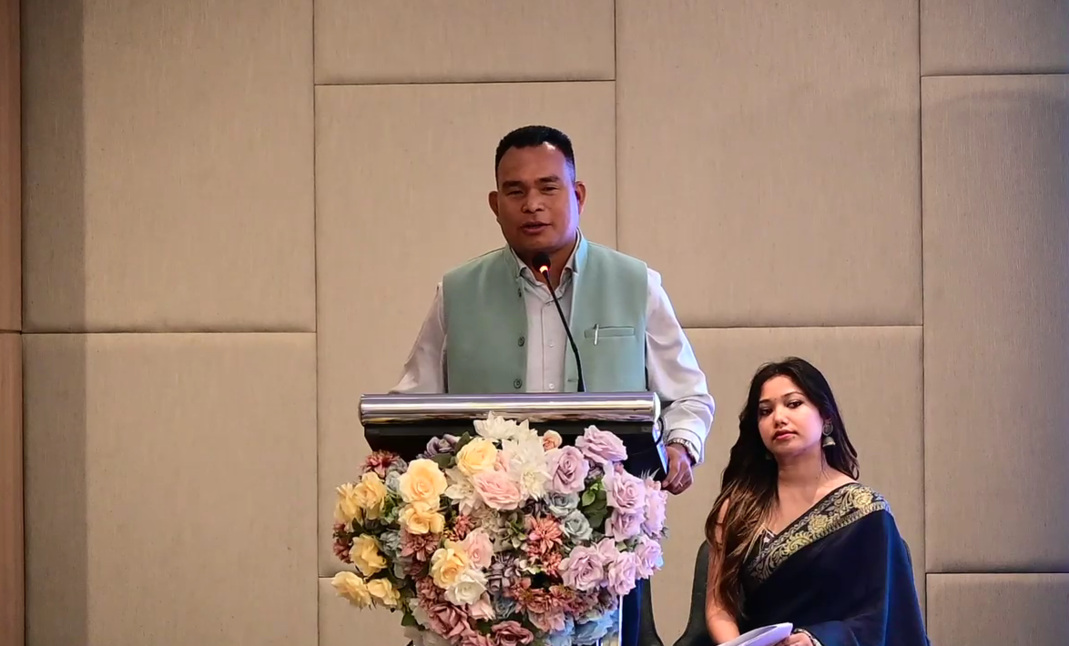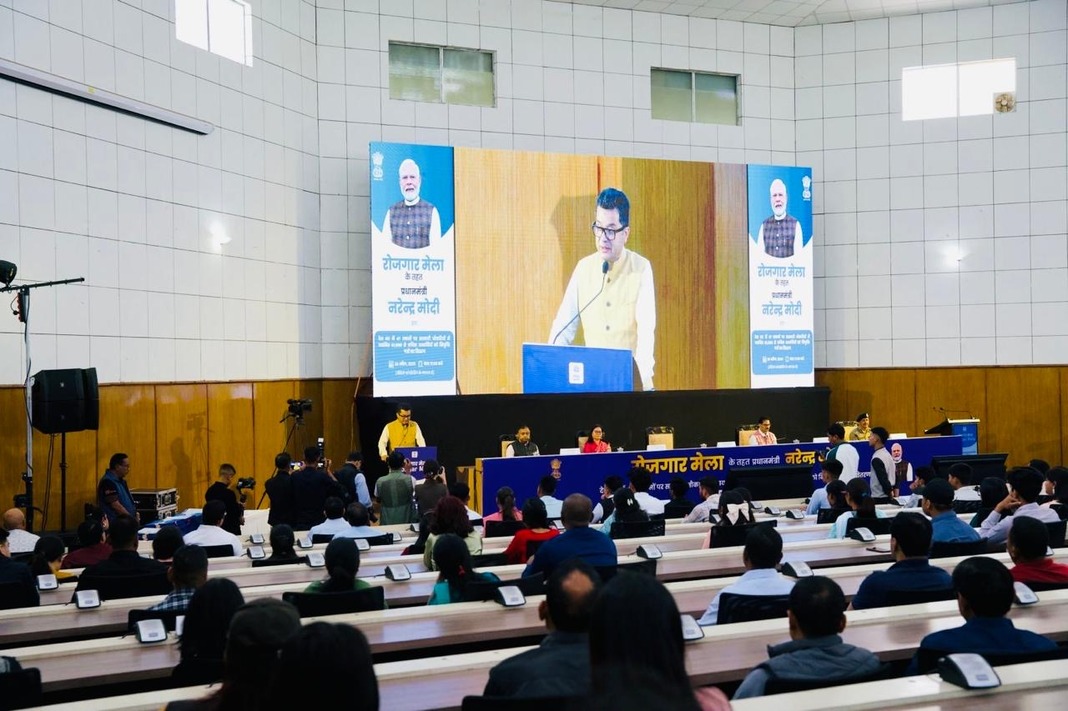
Shillong, Apr 27: For education minister Rakkam A Sangma, community comes ahead of religion! At a function in Shillong, he has underscored the importance of recognising individuals by their community and mother tongue rather than by their religion.
Addressing the graduation ceremony of The Forgotten Folklore Project (TFFP) on Satruday, he said, “We are often recognised by our religion instead of our true identity, which is wrong.”
“I am a Christian, but I should not be known as a Christian. I should be known by my community – Garo. I am born a Garo, and my mother tongue is Garo. Religion is my choice, but my identity is rooted in my community and language,” he said.
He pointed to Meghalaya’s cultural diversity as an example, adding, “Although I am a Meghalayan, I cannot speak Khasi because I am a Garo. We are from the same state, but I have my own culture and tradition.”
Sangma emphasised the need for unity in preserving cultural identities, highlighting the endangered status of the Atong language, which is spoken by only about 25,000 people in India and Bangladesh.

“Our children have stopped speaking this language, putting it on the brink of extinction,” he warned.
The minister commended the organisers of TFFP for reviving traditional storytelling and weaving indigenous narratives into literature.
“We have a genesis and origin. The purpose of education, for any academician, is to discover what is inside and unfold it. These are beautiful practices that were almost forgotten,” he said.
Reflecting on his own experiences, he shared, “I still remember many stories narrated by my grandfather. I wrote some books, read many, but all have been forgotten. But there are some stories told by my grandfather that I still remember today. They are not found anywhere else on Earth. This storytelling is more than just telling stories; it carries deeper meaning.”
Recalling the vision of the late PA Sangma, former Lok Sabha Speaker, Rakkam said, “PA Sangma always emphasised the need to conserve resources and preserve identity for future generations. This initiative is more than writing books and storytelling—it has a purpose.”
The event marked the culmination of a six-month fellowship organised by the Sauramandala Foundation in collaboration with The/Nudge Institute and StoryWeaver by Pratham Books.
It brought together 15 fellows and 7 artists from across Northeast India, resulting in the creation of 20 children’s storybooks rooted in traditional folklore and designed to support Early Childhood Development.
Also launched during the ceremony was The Forgotten Folklore Project Storytelling Handbook, a creative resource aimed at educators and storytellers. Since its inception in 2020, TFFP has published 45 culturally rich storybooks, building a library of contextual children’s literature to preserve indigenous narratives.
The celebration, held at Crystal Hall, Vivanta, Shillong, saw participation from cultural leaders, scholars, and creatives. It underscored the urgent need to protect Northeast India’s heritage, uniting diverse voices to honuor the power of storytelling and its role in sustaining cultural identity.





